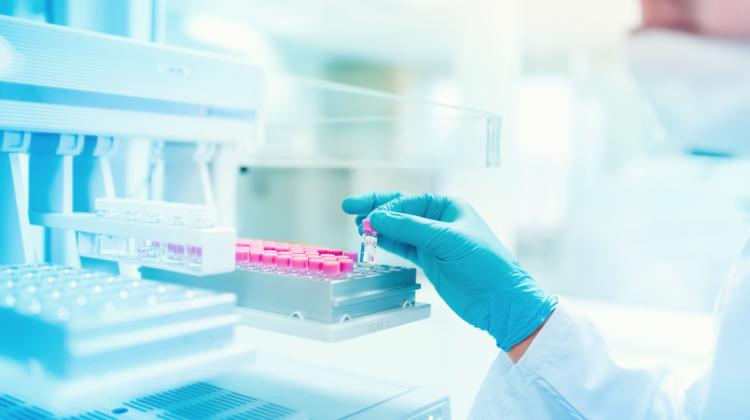Scientists discover new mechanism that supports corpus luteum function
 Credit: Adobe Stock
Credit: Adobe Stock
The corpus luteum plays an important role in early pregnancy through the production of progesterone, an essential hormone needed for the proper development of pregnancy. Scientists from the Institute of Animal Reproduction and Food Research of the Polish Academy of Sciences in Olsztyn discovered that this gland also secretes a protein called prokineticin 1, which increases lifespan and stimulates the functions of the corpus luteum.
Thus, this protein has a positive effect on the development of early pregnancy.
'We hope that in the future, based on the results of this study, it will be possible to develop therapies that will support the development of normal pregnancy in humans', says Dr. Agnieszka Wacławik, a professor at the Department of Hormonal Action Mechanisms, Institute of Animal Reproduction and Food Research PAS in Olsztyn.
The results of her team's research have just been published in Scientific Reports.
The corpus luteum is a temporary endocrine gland in the ovary. It synthesizes and secretes progesterone, which is necessary for the proper establishment of pregnancy, i.e. for the implantation of the embryo in the uterus and the development of the placenta. The activity of the corpus luteum depends on the ovum released in the process of ovulation - if the ovum is not fertilised or the development of the fertilised cell is inhibited, the corpus luteum disappears. The development of blood vessels during the formation and functioning of the corpus luteum is one of the most intense compared to other organs.
The disrupted function of the corpus luteum, both during the reproductive cycle and during pregnancy, carries a high risk of fertility disorders. However, the mechanisms regulating the functioning of this gland are not yet fully understood. Dr. Wacławik's team attempted to explain them.
In previous studies, scientists from Olsztyn focused on a certain protein called prokineticin 1, showing its important role in the processes related to the establishment of pregnancy, primarily the development of blood vessels in the endometrium, as well as the development of the embryo and placenta in pigs (for ethical reasons, tissues from a woman's ovary cannot be tested during the physiological changes of the reproductive cycle or pregnancy, and some mechanisms are universal for mammals).
Now, scientists from the Polish Academy of Sciences institute in Olsztyn have shown that prokineticin 1 is present in the corpus luteum of the pig and regulates the processes involved in the development of the corpus luteum and its functioning (both during the reproductive cycle and during pregnancy).
'We have shown that prokineticin 1 and its receptors are mainly found in luteal cells (those that produce progesterone) and in the blood vessels of the corpus luteum. An important finding was proving that the highest protein content of prokineticin 1 is found in the corpus luteum during early pregnancy,’ Wacławik, says.

Knowing that prokineticin 1 was active in the corpus luteum, the researchers also decided to check what processes it participated in. 'Using in vitro tissue and cell culture models, we showed that the tested agent stimulates the expression of genes involved in the production of steroid hormones and the synthesis of progesterone by the corpus luteum. An important discovery was proving that prokineticin 1 increases the viability of the corpus luteum tissue and inhibits apoptosis (the process of cell destruction) of cells, in which progesterone is produced. Further research showed that prokineticin 1 stimulates the processes of building blood vessels (angiogenesis) in the corpus luteum,’ explains Dr. Wacławik.
This means that the synthesis of prokineticin 1 in the corpus luteum during pregnancy may have an important role in preventing the regression of the corpus luteum and maintaining its function in the process of establishing and developing early pregnancy.
'Despite the existence of interspecies differences, certain physiological mechanisms occurring during early pregnancy are universal for mammals, which is why the presented results may contribute to further research on other species, including humans,’ Wacławik says.
The research team members are : Dr. Agnieszka Wacławik, a professor at the Polish Academy of Sciences; Monika Baryła (the results are an important part of her doctoral dissertation); Dr. Ewelina Goryszewska-Szczurek and Dr. Piotr Kaczyński.
PAP - Science in Poland, Agnieszka Libudzka
ali/ agt/ kap/
tr. RL
Przed dodaniem komentarza prosimy o zapoznanie z Regulaminem forum serwisu Nauka w Polsce.


















